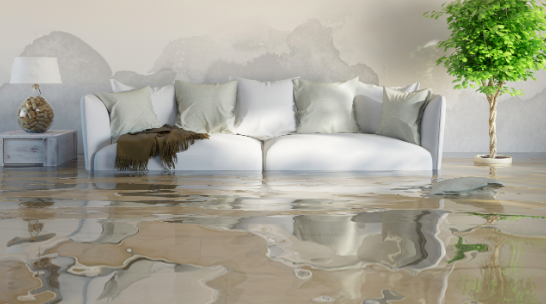Ways to Protect Your Home from Water Damage
RH Business Marketing Solutions
Ways to Protect Your Home from Water Damage
We know about the kind of physical destruction that water damage can inflict on our homes. Our appliances and furniture will be ruined, our carpets will be soaked and rendered useless, and our home itself will be at risk of sustaining structural damage. All this can happen even when the water that intrudes into our homes is only an inch or so deep.
However, the one thing that we all should be concerned so much about is the danger it poses to our health and well-being, especially if we don’t contact a water damage restoration company immediately.
All that moisture collecting inside your home will likely trigger the formation of mold. If the water that inundated your home is from sewage or worse, all the contaminants in it are going to make you and your family sick.
Water damage is bad, but it’s a good thing that we can actually do something to protect our homes—and our families—from all the dangers it brings. Here are some ways to protect your home from water damage.
Shut Off the Main Water Valve When Out of Town
Are you going out of town for a few weeks or even months? If so, you have probably made arrangements for a friend or a relative to house sit the entire time you’re away.
If you haven’t, or if you couldn’t find anyone you can trust to watch your home for you, then you should shut the main water valve off before you leave. Doing so will minimize the risk of a water pipe leaking or bursting. It will ensure that you won’t be coming home to a flooded home in a few weeks.
Check Your Plumbing
As mentioned above, pipes could leak or explode and cause flooding. Drains and sewers could also clog up and cause water to back up and mess up your home.
You will need to check your plumbing from time to time and make sure there are no leaks, loose water pipes, or blockages to worry about. If you’re not that confident about your plumbing skills, call a professional plumber for the job.
Keep Your Rain Gutters Clean
Your rain gutters should always be clear of leaves, branches, and all kinds of debris, so check them periodically.
You wouldn’t want blocked rain gutters, because that means they won’t be able to reroute rainwater properly. Instead of bringing them away from your house, the rainwater will simply spill over the gutters and cascade down the siding of your home and eventually damage the walls and foundation.
Check Your Water Heater.
You should inspect your water heater every year to make sure the tank isn’t leaking due to rust or corrosion. Watch out for signs of a leak like badly corroded parts of the tank and small puddles of water on the floor. If you notice signs of a leak, call water heater professionals to address the problem immediately.
Seal Your Windows
Sometimes, it rains so hard, but the water just goes straight down. There are times, however, when the downpour comes with strong winds, causing rain to go sideways and enter your home through the windows. However, if you caulk and seal your windows from time to time, sideways sheets of rain shouldn’t be a problem.
Get Rid of Snow and Ice
Snow and ice are going to accumulate on your property if you live in a region where winters are incredibly cold. They will melt away eventually when spring comes, but it’s better to remove all that snow and ice right away, especially from elevated areas. You don’t want all the water the spring melt will produce to cascade down your house and cause some trouble.
Plant Trees to Fend Off Flooding.
We’ve all learned in school that trees help prevent flooding, so let’s put that into practice and plant trees around and within our property.
However, you need to be careful about the types of trees you plant and avoid those with aggressive root systems that could damage foundations. You should also plant trees at least 10 feet from your house for good measure.
Put Up Water Detectors
Water detectors are designed to pick up elevated levels of moisture and even slow leaks and sound off an alarm. You would do well to install some in your home, especially near washing machines, sump pumps, and toilets.
There are many other ways of protecting your home from water damage, but the tips above are a good place to start.
Guest Contributor: Rachel Anderson















